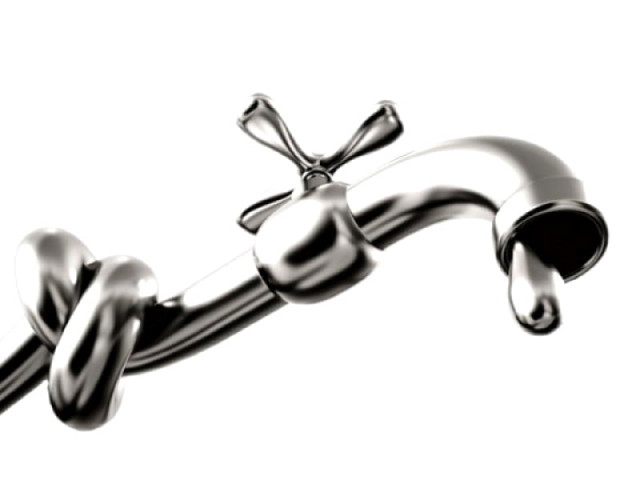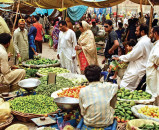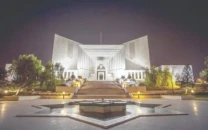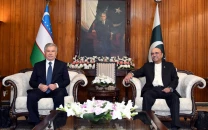Taps in parts of Pindi go dry
Officials struggle to grapple with water shortage in the area

Officials struggle to grapple with water shortage in the area. PHOTO: FILE
To make matters worse, the situation has been deteriorating with each passing day in the suburbs where taps have run dry and residents are forced to rely on
groundwater only.
“We usually face water shortages every summer in May or June,” said Abdul Majeed, who has been living on the Adiala Road for the past 20 years.
“This year, however, the situation started deteriorating from mid-March owing to insufficient rainfall in winter.”
Noting that there was little to no water supply in the area, Majeed said that he had dug a well in his house. But come summers and they face a shortage of water until the monsoon season starts.
“A water tanker costs between Rs1, 000 to Rs1,200, and lasts for five to six days for my family of eight,” said Qazi Nauman who lives near Morah Chappar on Chakri Road.
The situation, he said, is aggravated when underground water levels fall during the hot weather.
It is not easy to spare Rs5,000 to Rs6,000 every month to pay for water tankers for a salaried person, he said.
A visit to different localities along the Adiala, Dhamial and Chakri Road in the south of the city showed that unplanned urbanisation was fast cropping up, presenting a new issue for the administration which is already struggling with supplying water to existing localities.
“All these areas fall within the two National Assembly constituencies from where Interior Minister Chaudhry Nisar Ali Khan has been contesting elections,” said Yasir Aurangzeb who lives in the Gulshan-e-Iqbal locality on Dhamial Road.
“He [Nisar] is a prominent and influential leader of the ruling Pakistan Muslim League-Nawaz (PML-N). It is sad to note that he has so far failed to launch any water supply schemes for his areas,” Aurangzeb added.
Meanwhile, senior officials of the Potohar Town Municipal Administration - now part of the yet to be completed district council – claimed that the government had initiated a number of water supply schemes under community-based projects.
Under these projects, the locals are supposed to look after the tube wells installed, pipelines, and water charges, he said.
But the municipal administration is at odds with the Water and Sanitation Agency (Wasa) who supplies the essential commodity.
A Wasa official said that the agency was responsible for supplying water to the 46 union councils in the city. He added that the government had recently added six more union councils to which Wasa was responsible for supplying water.
Asked how the civic agency would manage water distribution and supply in these UCs located in the Morgah and Kotha Kallan areas, the Wasa official said that as soon as the Chahan dam on Chakri Road is completed, it would help supply water to these areas.
The official, wishing not to be named, further said that Wasa received sufficient water from the Rawal and Khanpur Dams along with 300 tube wells in the city to meet water needs of the city.
However, with the population in the garrison city increasing rapidly, the official said that the two dams, proposed to be built in the Daducha and Chirah villages, would need to be built in the coming years to meet rising demands.
However, he said that the work on the projects is yet to commence owing to the involvement of powerful private housing societies in the area.
The official said that the government also needs to pay attention to the Ghazi Barotha project to bring water from the Indus River for the twin cities.
Published in The Express Tribune, May 1st, 2017.



















COMMENTS
Comments are moderated and generally will be posted if they are on-topic and not abusive.
For more information, please see our Comments FAQ